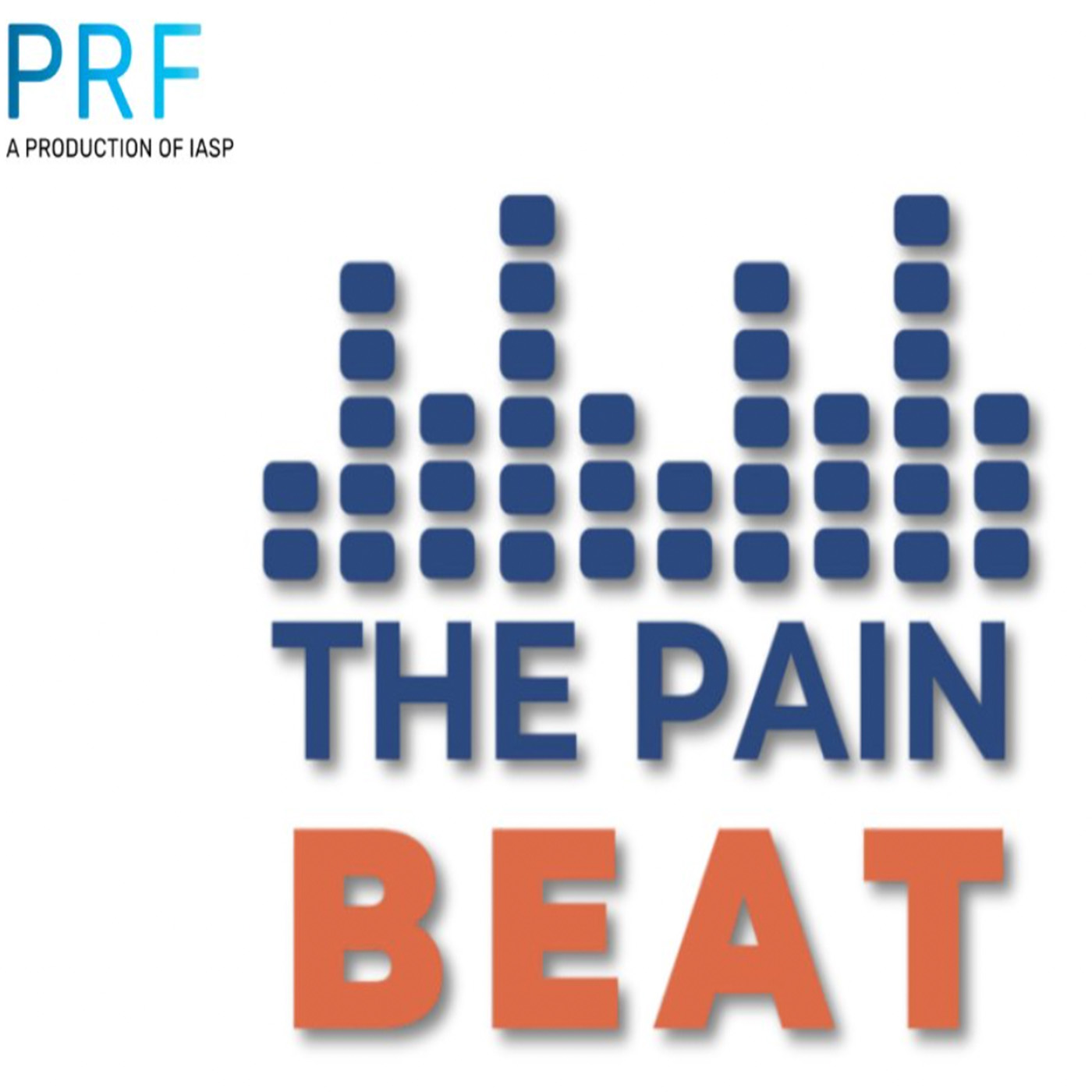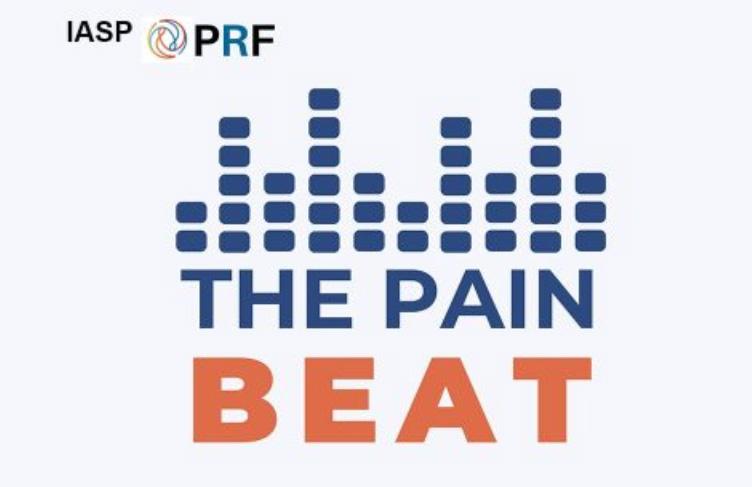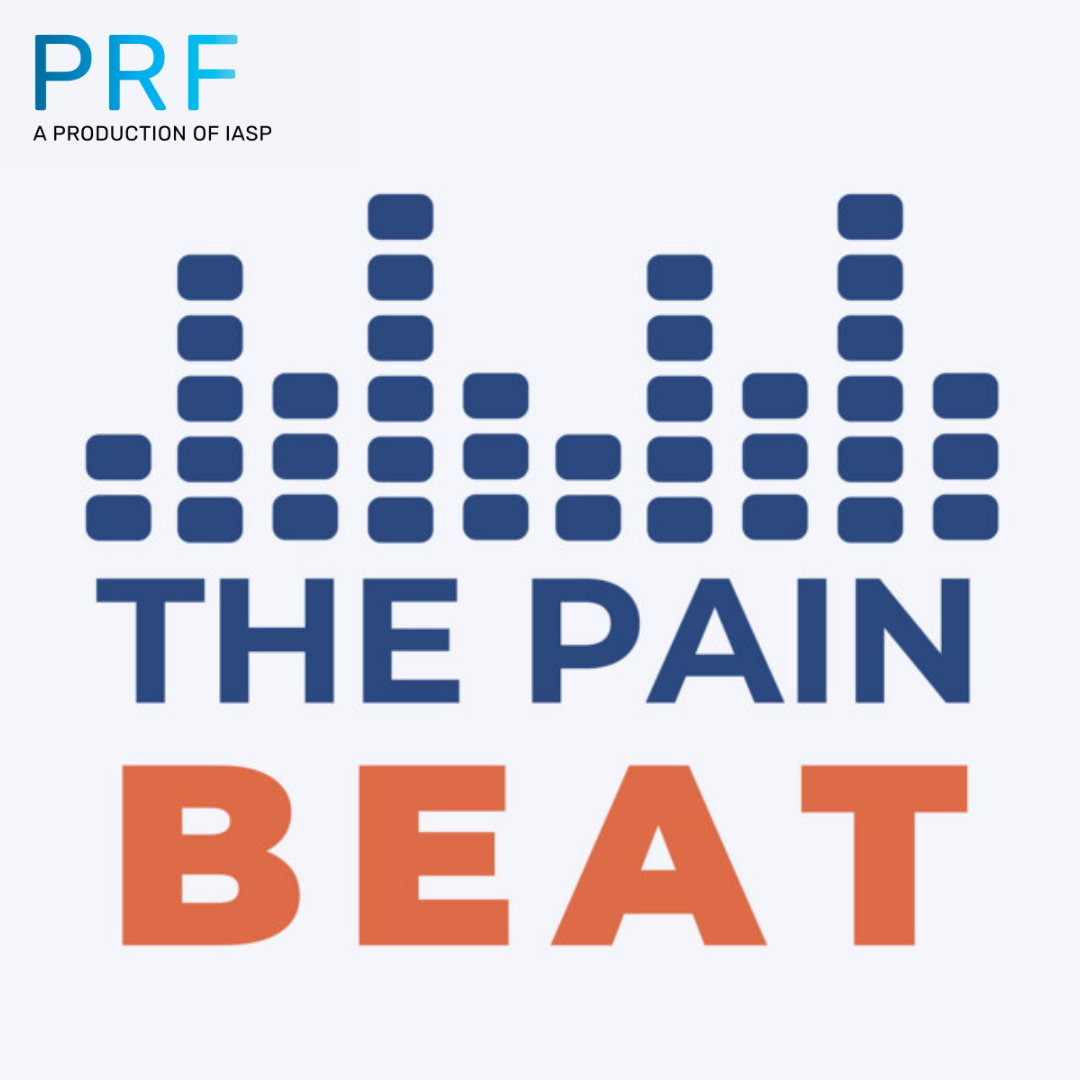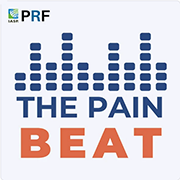Discover The Pain Beat
The Pain Beat

The Pain Beat
Author: IASP Pain Research Forum
Subscribed: 23Played: 202Subscribe
Share
© This content is copyrighted by the IASP Pain Research Forum
Description
The Pain Beat brings together the world's leading pain investigators in order to spark dialogue and debate around important ideas in pain research.
20 Episodes
Reverse
Manager's note: The Pain Beat, launched and supported by a generous grant from the MAYDAY Fund, with additional funding from the Rita Allen Foundation, brings together the world's leading pain investigators with the purpose of sparking dialogue and debate around important ideas in pain research. Guided by Rebecca Seal, scientific director of The Pain Beat and Editor-in-Chief of Pain Research Forum, the podcasts feature open and spirited discussions about the hottest topics in pain and how the field moves forward. For this episode, Adam Dourson and Lite Yang served as both creators and producers. Lite Yang moderates an important discussion with leaders in the pain field, which provides insights into current work to use human donor tissues to guide basic research findings to increase the success of clinical outcomes. This is update on Episode 4 recorded in 2021, which featured another group of leading pain researchers. Podcast participants include: Robert Gereau, PhD, Washington University in Saint Louis, US Wenqin Luo, PhD, University of Pennsylvania, US Theodore Price, PhD, UT Dallas, US William Renthal, MD, PhD, Harvard University, US Lite Yang, Washington University in Saint Louis, US PRF thanks Kevin Seal for creating the music.
Manager's note: Welcome to the 19th episode of The Pain Beat! Launched and supported by a generous grant from the MAYDAY Fund, with additional funding from the Rita Allen Foundation, The Pain Beat brings together the world's leading pain investigators with the purpose of sparking dialogue and debate around important ideas in pain research. Guided by Rebecca Seal, scientific director of The Pain Beat and Editor-in-Chief of Pain Research Forum, the podcasts feature open and spirited discussions about the hottest topics in pain and how the field moves forward. On this episode of The Pain Beat, Juliet Mwirigi moderates an in person discussion about migraine with a diverse panel of preclinical and clinical experts at the USASP meeting in Chicago. Where are we in understanding and treating migraine? What successes have we had and what challenges do we still face? Podcast participants include: Andrew Russo, PhD, University of Iowa, US Gregory Dussor, PhD, UT Dallas, US Hadas Nahman-Averbuch PhD, University of Washington in Saint Louis, US Levi Sowers, PhD, University of Iowa, US Yohannes Woldeamanuel, MD, Mayo Clinic, US Juliet Mwirigi, PhD, Washington University in Saint Louis, US PRF thanks Adam Dourson and Lite Yang for producing the podcast and Kevin Seal for creating the music.
On this episode of The Pain Beat, Adam Dourson moderates a discussion about the role of the immune system in pain – what we know currently and ideas about how the immune system can be a target for new strategies to treat chronic pain. Podcast participants include: Geffroy Laumet, PhD, Michigan State University, US Luda Diachenko, PhD, McGill University, CA Thiago Cunha, PhD, University of Sao Paolo, BR Temugin Berta, PhD, University of Cincinnati, US Adam Dourson, PhD, Washington University in Saint Louis, US PRF thanks Lite Yang and Adam Dourson for producing the podcast and Kevin Seal for creating the music.
On this episode of The Pain Beat, Ewan St. John Smith hosted fellow scientists and clinicians with expertise in visceral pain, including Federica La Russa - a scientist who also brought the patient perspective. The participants belong to the MICA ADVANTAGE consortium led by Geoff Woods, University of Cambridge, UK. The discussion covered psychological and clinical perspectives on the experience of visceral pain and treatment, as well as the latest in preclinical research, including how visceral pain studies differ from other types of pain. Podcast participants include: Ewan St. John Smith, PhD, University of Cambridge, UK Franziska Denk, PhD, University College London, UK Federica La Russa, PhD, Freelance Science Writer Andrew Horne, University of Edinburgh, UK Amanda Williams, PhD, University College London, UK
This 16th episode of The Pain Beat highlights the work of a vibrant consortium of pain researchers working on a project known as Acute to Chronic Pain Signatures (A2CPS). A2CPS is focused on the identification of biomarkers to predict which patients will transition from acute to chronic pain, and which patients living with chronic pain can improve their quality of life with management (see related PRF news story). The Pain Beat invited several Primary Investigators from A2CPS to talk about the work of the consortium, and how listeners of The Pain Beat can get involved themselves! Podcast participants include: Kathleen Sluka, PT, PhD, FAPTA, A2CPS Principal Investigator; University of Iowa, USA John Burns, PhD, A2CPS Principal Investigator; Rush University Medical Center, Illinois, USA Chad Brummett, MD, A2CPS Principal Investigator; University of Michigan, USA Michael Olivier, PhD, A2CPS Principal Investigator; Wake Forest University, North Carolina, USA. Stephani Sutherland, PhD, A2CPS Communications Director; Johns Hopkins University, Maryland, USA (moderator)
This 15th episode of The Pain Beat is the third and final of a three-part series discussing the 2021 Nobel Prize in Physiology or Medicine – awarded to David Julius, University of California, San Francisco, USA and Ardem Patapoutian, Scripps Research, California, USA – for their work on molecules important for somatosensation (see PRF related interview here, PRF related news story here, part one of this series here, and part two of this series here). In this episode, The Pain Beat spoke with a group of collaborators and former mentees to discuss what the discoveries mean for the somatosensory field, as well as stories and insights about what it was like working with Drs. Julius and Patapoutian during that time. Podcast participants include: Allan Basbaum, PhD, FRS, University of California, San Francisco, USA Diana Bautista, PhD, University of California, Berkeley, USA Alexander Chesler, PhD, National Institutes of Health, Maryland, USA Ellen Lumpkin, PhD, University of California, Berkeley, USA Tayler Sheahan, PhD, University of Pittsburgh, USA (Host)
This 14th episode of The Pain Beat is the second of a three-part series discussing the 2021 Nobel Prize in Physiology or Medicine – awarded to David Julius, University of California, San Francisco, USA and Ardem Patapoutian, Scripps Research, California, USA – for their work on molecules important for somatosensation (see PRF related interview here, PRF related news story here, and part one of this series here). In this episode, The Pain Beat spoke with Nobel Prize laureate Ardem Patapoutian and Bertrand Coste, Aix-Marseille University, France, to discuss their discovery of mechanically sensitive ion channels – Piezo1 and Piezo2. Podcast participants include: Ardem Patapoutian, PhD, Scripps Research, California, USA Bertrand Coste, PhD, Aix-Marseille University, France Tayler Sheahan, PhD, University of Pittsburgh, USA (Host)
This 13th episode of The Pain Beat is the first of a three-part series discussing the 2021 Nobel Prize in Physiology or Medicine – awarded to David Julius, University of California, San Francisco, USA and Ardem Patapoutian, Scripps Research, California, USA – for their work on molecules important for somatosensation (see PRF related interview here, and PRF related news story here). In this episode, The Pain Beat spoke with Nobel Prize laureate David Julius and Michael Caterina, Johns Hopkins University School of Medicine, Maryland, USA, to discuss their discovery of TRPV1. The conversation provides insight regarding their thought processes and problem solving, the enduring challenges of scientific discoveries, and the fun they had along the way. Podcast participants include: David Julius, PhD, University of California, San Francisco, USA Michael Caterina, MD, PhD, Johns Hopkins School of Medicine, Maryland, USA Tayler Sheahan, PhD, University of Pittsburgh, USA (Host)
The twelfth episode of The Pain Beat is dedicated to Stephen McMahon, PhD, FMedSci (1954-2021). Stephen, affectionately known as "Mac," was a world class pain researcher, lecturer, and inspiration to many. Our podcast guests pay homage to "Mac" with stories that illustrate his influence on the pain research field, and those in it. He will be remembered not only for his seminal contributions to our understanding of pain, but also for his generous and enthusiastic personal spirit which has left an indelible mark. Podcast participants include: David Bennett, MB, PhD, University of Oxford, UK Gary Lewin, PhD, Max-Delbrück Center for Molecular Medicine, Berlin, Germany Irene Tracey, DPhil, University of Oxford, UK Franziska Denk, DPhil, King's College London, UK (Host)
For its eleventh episode, The Pain Beat brought together experts to discuss the biological evolution of nociceptors, their subtypes, and plasticity as part of the Gulf Coast Consortium's #Pain2021 Webinar Series. These experts study nociceptors across a variety of animal models, including Drosophila, C. elegans, cephalopods, rodents, and humans. The discussion focused on how an evolutionary perspective brings novel insights into the role and function of nociceptors and if, why, and how organisms experience pain. Podcast participants include: Greg Neely, PhD, University of Sydney, Australia Edgar T. Walters, PhD, University of Texas Health Science Center at Houston, USA Robyn Crook, PhD, San Francisco State University, California, USA Ewan St. John Smith, PhD, University of Cambridge, UK Ted Price, PhD, University of Texas at Dallas, USA (Moderator) Peter Grace, PhD, University of Texas MD Anderson Cancer Center, USA (Host)
For its tenth episode, The Pain Beat brought together guests from a variety of career stages to share their experiences conducting pain and pain-related research during the COVID-19 pandemic. Their discussion highlighted unique and shared experiences, how research priorities and strategies shifted in response to the pandemic, as well as ways in which colleagues found and offered support. Podcast participants include: Theanne Griffith, PhD, University of California, Davis, US Kelly Smith, PhD, University of Pittsburgh, US Kara Marshall, PhD, Baylor University, Texas, US Lindsay Ejoh, PhD Candidate, University of Pennsylvania, US Tayler Sheahan, PhD, University of Pittsburgh, US (Moderator)
For its ninth episode, The Pain Beat brought together experts in how pain is measured clinically and experimentally. This multidisciplinary group discussed what is the difference between pain and nociception, why organisms experience pain and whether pain can be objectively measured since it is a subjective experience. Additionally, the group explored why researchers have relied on the measurement of nociception for so long and offer paths forward for the research community including a discussion of new technologies. Podcast participants include: Ishmail Abdus-Saboor, PhD, Columbia University, US Carl Saab, PhD, Case Western University, US Vivianne Tawfik, MD, PhD, Stanford University, US Mark Zylka, PhD, University of North Carolina at Chapel Hill, US Tayler Sheahan, PhD, University of Pittsburgh, US (Moderator)
For its eighth episode, The Pain Beat gathered together a group of pain researchers with expertise in the study of sex differences in pain. The group discussed their own discoveries of sex differences in pain in the course of their research, why pain investigators should pay attention to sex differences and how they should go about examining them, and much more. Podcast participants include: Gregory Dussor, PhD, University of Texas at Dallas, US Jeffrey Mogil, PhD, McGill University, Montreal, US Anne Murphy, PhD, Georgia State University, Atlanta, US Kate Sadler, Medical College of Wisconsin, Milwaukee, US (moderator)
For its seventh episode, The Pain Beat gathered together an international group of pain researchers to discuss brain imaging of pain in humans. The podcast focuses on how studies of expectation and the placebo effect have advanced our understanding in this area. What we've learned so far, whether pain brain imaging can be used as a diagnostic tool, and future prospects for neuroimaging are all addressed in this lively discussion. Podcast participants include: Christian Büchel, MD, University Medical Center Hamburg-Eppendorf, Germany Irene Tracey, DPhil, University of Oxford, UK Tor Wager, PhD, Dartmouth College, Hanover, US Howard Fields, MD, PhD, University of California San Francisco, US (moderator)
For the sixth episode, The Pain Beat gathered together an international group of pain researchers, science communicators and civic science advocates to discuss what effective, empathic and inclusive science communication looks like. Specific questions discussed in the podcast include: What are the major challenges chronic pain research faces in different parts of the world? How can we address those challenges using a different and more audacious approach? What have we learned about the general public's sentiments regarding chronic pain, and why is that important for enhancing interest in chronic pain? And what approach should professional communicators take to create narratives that are impactful and able to transform public discourse about chronic pain?
For the fifth episode, The Pain Beat gathered together a group of pain researchers virtually to discuss how the mammalian nervous system encodes sensory modalities related to touch, pain and temperature. Are there labeled lines? Is there population coding? Do the mechanisms differ by location – the brain, spinal cord or periphery? Podcast participants include: Diana Bautista, PhD, UC Berkeley, US; Nicholas Betley, PhD, University of Pennsylvania, Philadelphia, US; Adam Hantman, PhD, Howard Hughes Medical Institute Janelia Research Campus, Ashburn, Virginia, US; Mark Hoon, PhD, National Institutes of Health (NIH), NIDCR, Bethesda, US; Taylor Sheahan, PhD, University of Pittsburgh, US (moderator)
For the fourth episode, The Pain Beat gathered together a group of pain researchers via Zoom to discuss the use of human tissue in pain research and prospects for clinical translation of new knowledge emerging from this approach. Podcast participants include: Steve Davidson, PhD, University of Cincinnati, US Michael Hildebrand, PhD, Carleton University, Ottawa, Canada Clifford Woolf, MB, BCh, PhD, Boston Children's Hospital and Harvard Medical School, Boston, US Laura Stone, PhD, University of Minnesota, Minneapolis, US Alex Chamessian, MD, PhD, Washington University School of Medicine in St. Louis, US (moderator)
A group of pain researchers gather to discuss ideas and issues related to the transition from acute to chronic pain.
Editor's Note: Welcome to the second episode of The Pain Beat, PRF's new monthly podcast series! Supported by a generous grant from The MAYDAY Fund, The Pain Beat brings together the world's leading pain investigators in order to spark dialogue and debate around important ideas in pain research. Guided by Rebecca Seal, Scientific Director of The Pain Beat, these podcasts feature open and spirited discussion about the hottest topics in pain and how the field moves forward from here. For the second episode, The Pain Beat gathered together a group of pain researchers in Keystone, Colorado, US, where two joint Keystone Symposia, Somatosensation: From Detection to Perception and Pain: Aligning the Target, were being held from February 2-5, 2020. The podcast participants include: Allan Basbaum, University of California San Francisco, US Robert Gereau, Washington University School of Medicine, US Yarimar Carrasquillo, National Institutes of Health, US Stephani Sutherland, PRF freelancer (moderator) The group found a quiet spot amidst the hubbub of the meeting to discuss whether optogenetics and chemogenetics are feasible approaches to pain treatment, and if so, how effective they might be. The podcast also includes brief introductions to these two approaches.
Welcome to the inaugural episode of The Pain Beat, The IASP Pain Research Forum's new monthly podcast series! Supported by a generous grant from The MAYDAY Fund, The Pain Beat brings together the world's leading pain investigators in order to spark dialogue and debate around important ideas in pain research. Guided by Rebecca Seal, Scientific Director of The Pain Beat, these podcasts feature open and spirited discussion about the hottest topics in pain and how the field moves forward from here. For the first episode, The Pain Beat gathered together a group of pain researchers in Keystone, Colorado, US, where two joint Keystone Symposia, Somatosensation: From Detection to Perception and Pain: Aligning the Target, were being held from February 2-5, 2020. The podcast participants include: Alexander Chesler, National Center for Complementary and Integrative Health, National Institutes of Health, Bethesda, US Ardem Patapoutian, Scripps Research, La Jolla, US Sarah Ross, University of Pittsburgh, US Cheryl Stucky, Medical College of Wisconsin, Milwaukee, US Stephani Sutherland, PRF freelancer (moderator) The group found a quiet spot away from the hubbub of the meeting to discuss the following question: What biological levels should be targeted to produce the most effective pain therapies: molecules, cells, circuits, or systems?














